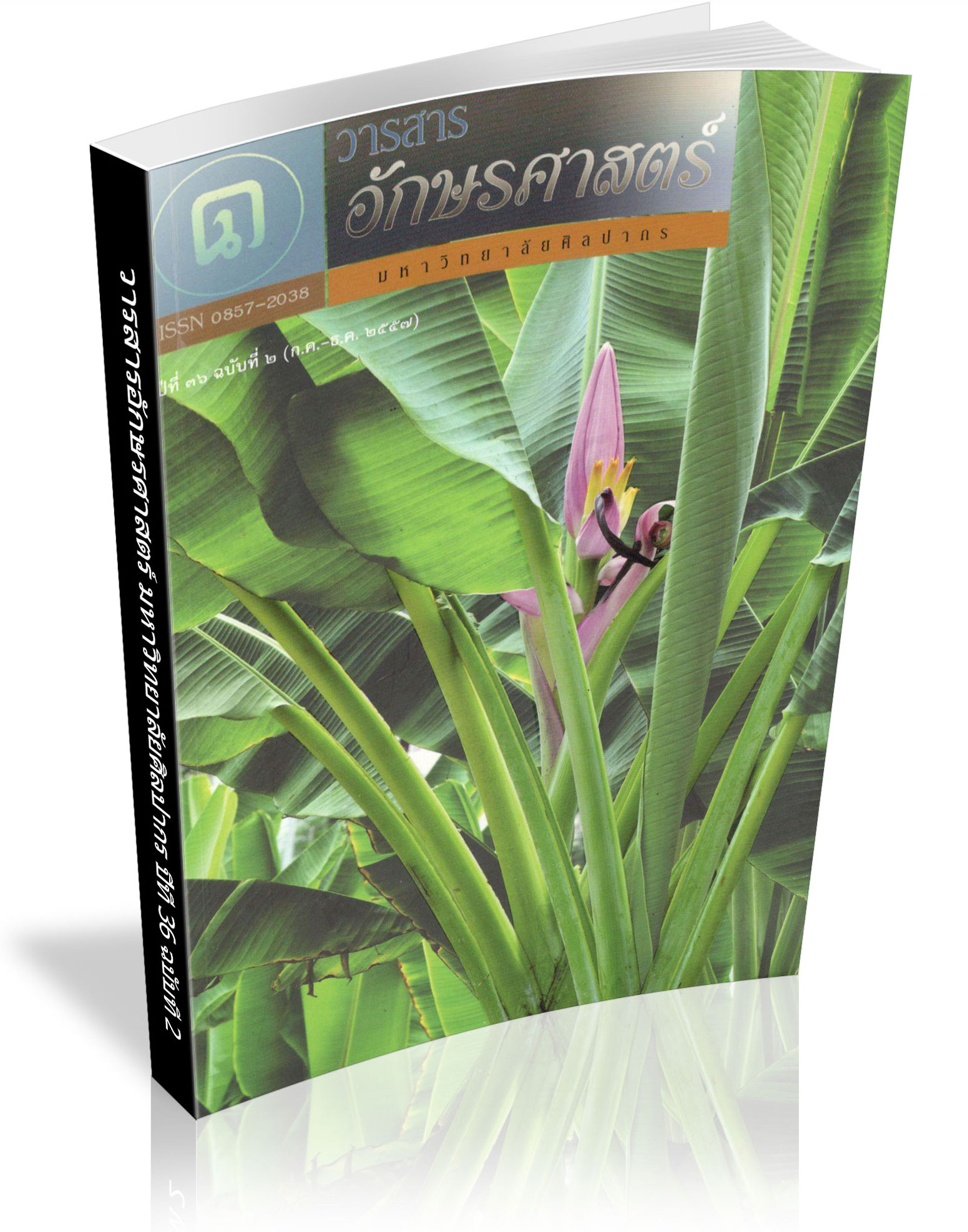“Chinese Subjects” and the Idea of the Establishment of a Chinese Consular in Siam in the Reign of King Rama V
Keywords:
Chinese Subjects, Extraterritoriality, Chinese Consular in SiamAbstract
This article examines the emergence, development and policies of the Siam government relating to “Chinese subjects” in the reign of King Rama V, and the idea of establishing a Chinese consular in Siam that arose at that time. Furthermore, there are certain associations between the Chinese subjects and the Chinese consul foundation. The findings show that the emergence of "Chinese subjects" was the result of the treaties between Siam and western master-powers, which provided westerners and their subjects with free trade rights and extraterritorial jurisdiction. Consequently, these advantages enabled a number of Chinese migrants in Siam to register to become the subjects of western countries, taking advantage of a legal loophole. The emergence of "Chinese subjects" in Siam society, since then, brought about many problems to the Siam government. However, some other Chinese merchants did not concur with the idea of being under the westerners' control. They required Qing's court to establish a consular in Siam so that they could ensure legal protection directly, instead of getting what they needed by registering to be subjects
of western countries. This proposal coincided with that of high officials of Qing's court, who were considering establishing consuls in different countries where Chinese migrants settled, in order to legally protect them and gain economic benefits from the overseas Chinese. Siam was a country in which the Manchu government was interested. Although this idea failed because of many factors in the end, this case is part of the history of Sino-Thai relations that is worth studying of immeuse interest.
Downloads
References
คริส เบเคอร์ และผาสุก พงษ์ไพจิตร. ประวัติศาสตร์ไทยร่วมสมัย. กรุงเทพฯ : มติชน, ๒๕๕๗.
จํานงศรี รัตนิน, คุณหญิง. ดุจนาวากลางมหาสมุทร. กรุงเทพฯ : ปาปิรุส พับลิเคชั่น, ๒๕๓๘. (ที่ระลึกงานพระราชทานเพลิงศพนายสุวิทย์ หวังหลี ป.ม. ณ วัดเทพ ศิรินทราวาส วันเสาร์ที่ ๘ ตุลาคม ๒๕๓๘).
Garnier, Charles M. “Bangkok, colonie chinoise, ou le secret du colosse jaune” Revue du Mois 12 (August 1911) : 233. Cited in Skinner G. William. Chinese Society in Thailand : An Analytical History. Ithaca : Cornell University Press, 1957.
James, Eldon R. "Jurisdiction over Foreigners in Siam.” The American Journal of International Law 16, 4 (October 1922) : 591.
"Khadikhwam reung Nai Ked Nai Thet tham amnat khu kanchok rasadon.” Y (Justice) 13/35 April 1897.
National Archive of Thailand. Cited in Hong Lysa. "Extraterritoriality in Bangkok in the Reign of King Chulalongkorn, 1868-1910 The Cacophonies of Semi-Colonial Cosmopolitanism.” Itinerario 27, 2 (2003) : 134.
Downloads
Published
How to Cite
Issue
Section
License
ผู้เขียนบทความต้องยินยอมในข้อกำหนดต่าง ๆ ของวารสารก่อนส่งบทความตีพิมพ์



